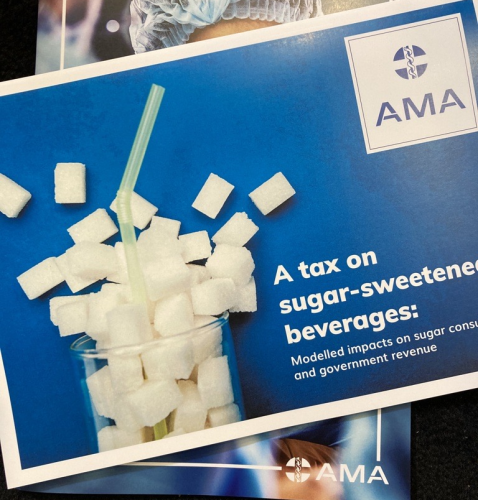Sugar tax: a sweet deal for public health and the upcoming federal budget
The Australian Medical Association is continuing its call for a tax on sugary drinks to curb the nation’s growing obesity and chronic disease, following the release of new data showing a staggering 64 per cent of Australians are likely to be overweight or obese by 2030.

Data released by the Australian Institute of Health and Welfare (AIHW) this week reveals that obesity continues to be a major public health issue in Australia and is the second biggest modifiable risk factor contributing to disease burden in Australia after tobacco. The AIHW analysis reveals that almost two in three Australians will be overweight or obese by 2030, and obesity will result in 13,400 preventable deaths.
AMA President Professor Stephen Robson said this latest analysis is just more evidence that Australia needs to be proactive in dealing with the obesity crisis, and a tax on sugary drinks would be a step in the right direction.
“We know that frequent consumption of sugary drinks is associated with obesity and chronic disease. Evidence from overseas shows that a sugar tax is an effective way to reduce sugar consumption and improve health outcomes,” Professor Robson said.
The public health chapter of AMA’s Pre-Budget Submission 2023–24 launched today outlines how a tax would have a positive impact on health outcomes and the upcoming budget.
“A tax of 40 cents on every 100g of sugar added to soft drinks would raise the cost of a 375 ml can of soft drink by just 16 cents, which is a small price signal that shows us that these drinks are bad for us, and that we should instead be choosing water — the free and healthy alternative.
“Our analysis projects this tax would reduce consumption by 31 per cent by 2025–26, and is estimated to result in 16,000 fewer cases of type 2 diabetes, 4,400 fewer cases of heart disease, and 1,100 fewer cases of stroke. It is a simple but effective way to improve the lives of Australians.”
Professor Robson said the tax would also result in government revenue of $2.8 billion across four years, which could be reinvested back into preventative health, at a time where government is looking for savings in the upcoming budget.
“It is a win-win-win policy, as it saves money in the health budget, raises revenue for preventative health, and saves lives. And we know it works, because more than 85 jurisdictions have already implemented taxes on sugary drinks.
“Surveys show Australians support a sugar tax, particularly if revenue is reinvested into preventative health. Australian sugar farmers also have little to fear, as about 80 per cent of Australia’s domestic sugar production is exported and only around 5 per cent goes into sugary drinks.
“The AMA will continue campaigning for a tax on sugary drinks because we know it works and it is the right thing to do for the health of Australians. It’s a no brainer.”
Read the AMA Pre-Budget Submission 2023–24 chapter about a tax on sugary drinks.
Visit the #SicklySweet campaign website for more information on the AMA’s sugar tax campaign.
Read the AIHW report.



